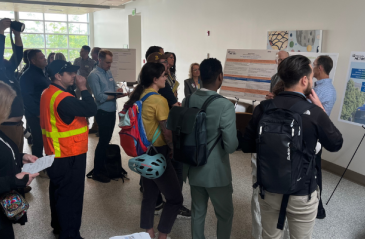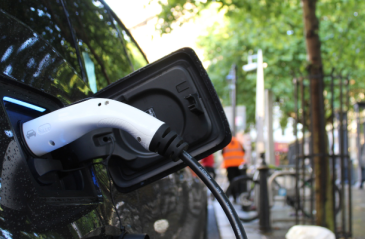
The information barriers holding back climate action and how to break them

Technology is helpom close productivity gaps in many of Kenya’s abundant small farms
Share articleMobile technology is also helping farmers benefit more broadly from commercial products
Share articleAlthough access is accelerating, sub-Saharan Africa remains in the feature phone era
Share articleWe put our vision for government into practice through learning partner projects that align with our values and help reimagine government so that it works for everyone.
Ours is a world transformed. Apps, mobile technology and digital advances are reshaping how we live, work and play - and these changes are by no means limited to those in developed countries.
Mobile apps and services are redefining economic development - helping individuals boost their own productivity; helping the poor benefit from commercial services and products; and creating new operating models that allow public and social sectors to evolve more dynamically. It's a powerful combination, and one that is poised to have the biggest impact where people and communities need the biggest productivity boost: developing countries. Don't believe me? Let's take a look at how specific mobile apps and services are already improving productivity in Kenya.
Kenya is a country on the move for many reasons. Consistently high economic growth is underpinned by its geographic position as East Africa's leading urban hub. The region is home to more than 200 million people, enjoys rich natural resources and is increasingly integrated across borders.
Challenges remain, however. Many of Kenya's abundant small farms have huge productivity gaps - so large that targeting a three-fold improvement is seen as a reasonable goal. Technology, though, is helping bring this goal within reach. Mobile apps, like iCow, offer a new channel through which to get agricultural information to farmers, advising on how to grow crops more effectively, how to manage livestock and how to get better market prices - all from their phone. iCow alone is reaching more than 180,000 farmers and is a great example of a mobile service increasing individual productivity.
Another boost to productivity is to help farmers benefit more broadly from commercial products and services in order to provide new ways to invest in their business and manage risk. A mobile service doing just this is Kilimo Salama, or ‘safe agriculture' in Kiswahili.
With Kilimo Salama insurance, if farmers add a small amount to the cost of seeds at the time of purchase, they can insure that cost. If rainfall is too low or too high during seed germination, they get an automatic payout through their m-pesa mobile money account. This takes the risk out of paying for more expensive seeds with higher yields. There are nearly 200,000 farmers using this platform and it's expanded beyond Kenya to Rwanda and Tanzania. And because it's gained critical mass, a new company, ACRE, has been formed around the original venture to drive rapid scaling.
A key element of both examples is that farmers pay towards these products and services. Only stuff that is simple to use, and delivers real productivity improvement, will survive in the Darwinian app ecosystem.
Our third piece of the productivity puzzle is improving public and social support services. Let's look at health, for example. An ambitious mobile program just rolling out in Kenya, Jamii Smart is a dynamic mobile web portal that enables community health workers to enter and access information about every mother and every child in their care. It helps them understand what questions to ask their patients and when. It sends SMS alerts to mothers, reminding them of their next appointment. It aggregates information, which it sends to the Ministry of Health to track progress and assess needs. Its benefits are numerous.
It's early days, but these kind of apps and services are delivering better results, with more mothers attending mobile clinics and going to facilities for childbirth. Getting better care closer to the patient is critical. So, as Jamii Smart is showing us, in developing economies we'll have new operating models for managing health.
One area of concern is that smartphones have not - yet - become as prevalent as in developed countries. Although access is accelerating, sub-Saharan Africa remains in the feature phone era. This, then, is the time to invest. It's time for us to hone the content and algorithms, the standards and interoperability. It's time to work out the revenue models and access frameworks. It's time to build local app developer and entrepreneur communities. After all, apps on smartphones are far easier to scale, they are more intuitive, customised and compelling, and enable big data applications to really take off.
There is no doubt that mobile apps and services can change lives in dramatic ways. Not only is greater power now in the hands of local farmers and entrepreneurs, but commercial organisations can reach poor customers too expensive to serve before. We know more about what is being delivered and whether it is having the desired public impact. Systems, too, can scale faster and evolve module by module, function by function.
Yes, we have a way to go, but these are extraordinary times. Times that will change what we can all look forward to.
Learn more by watching Sarah's TED talk on tech solutions to economic development











